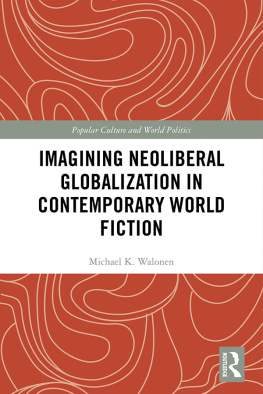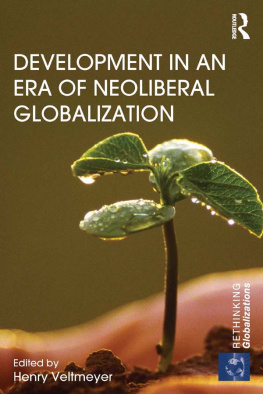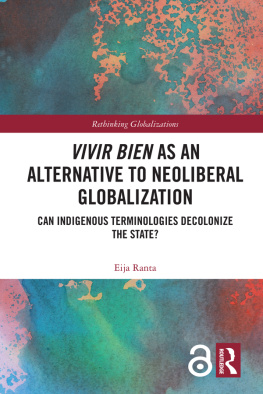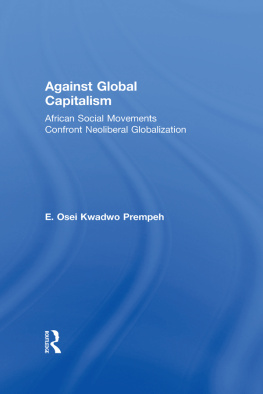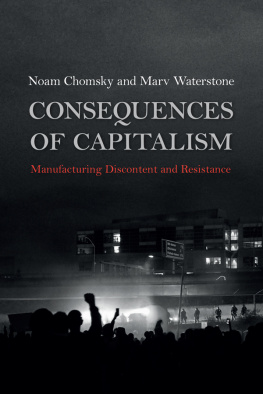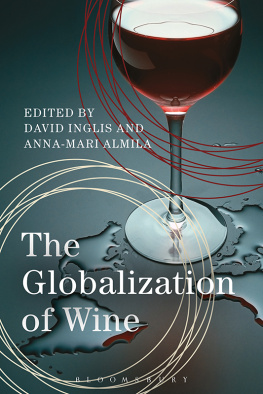Imagining Neoliberal Globalization in Contemporary World Fiction
We are in the midst of the third tectonic social transformation in human history. Our current transition toward greater forms of transnational interconnection, consumption- and finance-driven rather than production-based capitalism, digital information and cultural flows, and the attendant large-scale social and ecological consequences of these are drastically remaking our world, cultural producers from across the globe are seeking to make sense of, and provide insights into, these complex changes.
Imagining Neoliberal Globalization in Contemporary World Fiction takes a broad cross-cultural approach to analyzing the literature of our increasingly transnationalized world system, considering how its key constituent features and local-level manifestations have been thematized and imaginatively seized upon by literary fiction produced from the perspective of the periphery of the capitalist world system. Textual renderings of globalization are not simply second-order approximations of it, but constitutive elements of globalization that condition how it will be understood and responded to, and so coming to terms with the narrativizations of globalization is vital scholarly work, as, among other things, it allows us to see to what extent it is currently possible to imagine alternatives to globalizations more baleful aspects.
This work will be of interest to students and scholars across a range of areas including contemporary literary/cultural studies, globalization studies, international relations, and international political economy.
Michael K. Walonen is Assistant Professor of English at St Peters University, Jersey City, New Jersey, United States.
Popular Culture and World Politics
Edited by Matt Davies Newcastle University
Kyle Grayson Newcastle University
Simon Philpott Newcastle University
Christina Rowley University of Bristol
and
Jutta Weldes University of Bristol
The Popular Culture World Politics (PCWP) book series is the forum for leading interdisciplinary research that explores the profound and diverse interconnections between popular culture and world politics. It aims to bring further innovation, rigor, and recognition to this emerging sub-field of international relations.
To these ends, the PCWP series is interested in various themes, from the juxtaposition of cultural artefacts that are increasingly global in scope and regional, local and domestic forms of production, distribution, and consumption; to the confrontations between cultural life and global political, social, and economic forces; to the new or emergent forms of politics that result from the rescaling or internationalization of popular culture.
Similarly, the series provides a venue for work that explores the effects of new technologies and new media on established practices of representation and the making of political meaning. It encourages engagement with popular culture as a means for contesting powerful narratives of particular events and political settlements as well as explorations of the ways that popular culture informs mainstream political discourse. The series promotes investigation into how popular culture contributes to changing perceptions of time, space, scale, identity, and participation while establishing the outer limits of what is popularly understood as political or cultural.
In addition to film, television, literature, and art, the series actively encourages research into diverse artefacts including sound, music, food cultures, gaming, design, architecture, programming, leisure, sport, fandom, and celebrity. The series is fiercely pluralist in its approaches to the study of popular culture and world politics and is interested in the past, present, and future cultural dimensions of hegemony, resistance, and power.
Cultural Resistance, 9/11, and the War on Terror
Sensible Interventions
Jenifer Chao
Imagining Neoliberal Globalization in Contemporary World Fiction
Michael K. Walonen
First published 2018
by Routledge
2 Park Square, Milton Park, Abingdon, Oxon OX14 4RN
and by Routledge
711 Third Avenue, New York, NY 10017
Routledge is an imprint of the Taylor & Francis Group, an informa business
2018 Michael K. Walonen
The right of Michael K. Walonen to be identified as author of this work has been asserted by him in accordance with sections 77 and 78 of the Copyright, Designs and Patents Act 1988.
All rights reserved. No part of this book may be reprinted or reproduced or utilized in any form or by any electronic, mechanical, or other means, now known or hereafter invented, including photocopying and recording, or in any information storage or retrieval system, without permission in writing from the publishers.
Trademark notice: Product or corporate names may be trademarks or registered trademarks, and are used only for identification and explanation without intent to infringe.
British Library Cataloguing-in-Publication Data
A catalogue record for this book is available from the British Library
Library of Congress Cataloging-in-Publication Data
A catalog record for this book has been requested
ISBN: 978-0-8153-5951-7 (hbk)
ISBN: 978-1-351-12046-3 (ebk)
Typeset in Times New Roman
by Wearset Ltd, Boldon, Tyne and Wear
To everyone throughout history who has ever fought for a more just and equal distribution of the fruit of human society and human labor. And to those who continue to exert themselves, in deed and in thought, to show that another world is possible
Acknowledgments
No book ever gets written without the love, support, and confidence of a bevy of people. So, in no particular order, I really ought to thank some folks:
Saint Peters University, particularly for supporting this work of scholarship through a summer 2017 Kenny Fellowship and a Research Associate Fellowship.
Paul Almonte, my department head, for bringing me on board at Saint Peters University and supporting my work as a scholar in many ways, great and small.
My research assistant, Patrick Caoile, who was a tremendous help during the latter stages of manuscript preparation.
My fianc, Lorien Leonard, and my mother, Linda Walonen, for their un-ebbing care and the myriad small things they do that enable me to devote my time to doing things like writing books.
My consigliere, Hunter Blake Walonen, for being pretty damned funny and cool.
The librarians at Saint Peters University and in Daytona Beach, Florida who helped me to gather the source material for this study.
Here in the days following the Brexit vote and the Donald Trump presidential election, we are in the midst of a massive, often misdirected backlash against the social changes inaugurated by neoliberal globalization that will impact the lives of all of these people, especially those just starting to make their way in the world. I see swathes of that majority of the worlds population that has been adversely impacted by these changes in the world system attacking the more benign and even beneficial aspects of globalization such as transnational cultural diffusion and immigration while largely ignoring the neoliberal economic framework that has created such inequalities of wealth and power. I see this and pray, hopefully not naively, that in some small part this study will contribute to a greater understanding of this sea change in the social and economic ordering of the world, one that will allow us, as a global populace, to respond meaningfully and progressively to these world-systemic changes and the attendant challenges that will require concerted planetary responses here as we move deeper into the twenty-first century.

